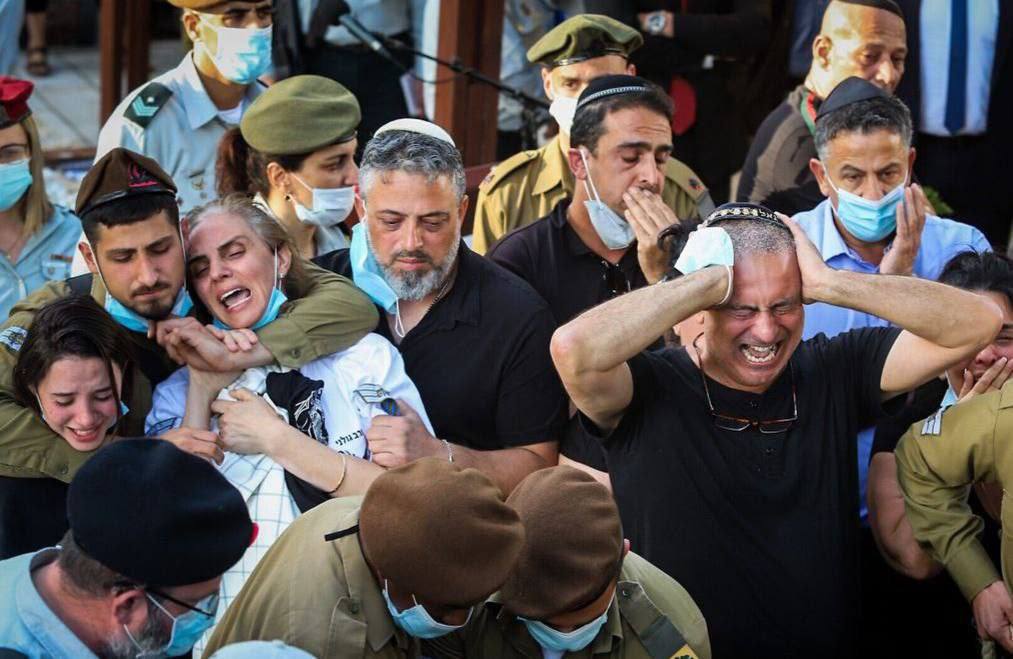
Different Israeli media establishments highlighted the difficult conditions facing Israeli occupation soldiers in Gaza, amidst increasing talk about the absence of clear goals for the war, and the future of the prisoners and possibility of a swap deal.
Israel Ziv, former head of the army’s operations division, expressed his deep concern about the situation of the soldiers in Gaza, and said in a statement on Channel 12 “the situation is very, very difficult for them, and I heard from reserve soldiers that they will not return again because of the harsh conditions they live in this place.”
He stressed the army seems to be preparing for a long-term occupation without clear goals, noting the soldiers are not only suffering from the military burden, but also from the repercussions of the war on their family lives, which prompted some to declare that they “will not be the fools of this country,” as he described it.
In turn, national security expert Kobi Marom believes that the war of attrition in Gaza is continuing at full force, especially in Jabalia, noting the army is preparing for the possibility of establishing military rule there by 2025.
In a Channel 13 interview Marom said that Prime Minister Benjamin Netanyahu’s statements about not stopping the fighting reflect a long-term vision for the war.
Seeking to conclude a deal
While Major General Yair Golan, former deputy chief of staff, spoke about the need to seek to reach a deal to release the prisoners as soon as possible, and said “a deal for the kidnapped soldiers could lead to a ceasefire in the south and perhaps also in the north.”
He stressed that the statements of some US officials about Hamas refusing to negotiate are “inaccurate,” noting the army’s representative in the negotiations, Nitzan Alon, previously stated that reaching a deal was possible, and he also criticized the Israeli leadership’s failure to provide any clarifications or meetings with the families of the detainees.
But MK Tsaga Malko believes that the issue is not partisan, but rather relates, according to her, to Hamas’s refusal to make a deal. The Kan 11 Channel presenter interrupted her, pointing to the influence of coalition partners, such as National Security Minister Itamar Ben-Gvir and Finance Minister Bezalel Smotrich, who are pushing for filling Gaza with Jewish settlements while disragarding a settlement to the conflict.
But Amnon Sofrin, ex-head of the Mossad intelligence division, added that negotiations are “the only option for freeing the kidnapped soldiers,” and said: “If there was a possibility of freeing them through a military operation, it would have been carried out, but the current guerrilla war could continue for 10 years without a result.”
Israeli media sources wondered why a settlement with the Lebanese Hezbollah in the north was sought while any settlement with Hamas was rejected but commentators concluded this was related to the agenda of the partners in the government, who see Gaza as an opportunity for settlements expansion, unlike Lebanon.
On Channel 13, political analyst Raviv Drucker confirmed The government is not facing real pressure from the security cabinet to complete the prisoner release deal. He added: “The leadership is pinning its hopes on the possibility of US President-elect Donald Trump intervening to exert new pressure, but most of the families of the kidnapped have lost hope,” according to Al Jazeera.


 INFO: The director of the Israeli Ziv Hospital, Salman Zarka, in Safed near the Lebanese border, stated on the American news channel CNN, “We are facing a continuous influx of our soldiers being killed and injured since the beginning of the ground operation in Lebanon.”
INFO: The director of the Israeli Ziv Hospital, Salman Zarka, in Safed near the Lebanese border, stated on the American news channel CNN, “We are facing a continuous influx of our soldiers being killed and injured since the beginning of the ground operation in Lebanon.”  (@SilentlySirs)
(@SilentlySirs)  Truth Eyes (@theworldtruthe)
Truth Eyes (@theworldtruthe) 





